What Is Hernia ?
A hernia is a swelling in groin (area between abdomen & thighs) which you can see or feel ( Inguinal Hernia). At times, it can also be around navel (Umbilical Hernia) or near abdominal scars (Incisional hernia) due to protrusion of an organ or tissue through an abnormal opening in the body. Most hernias occur when a piece of intestine slips through a weakness in the abdominal wall, creating a bulge you can see and feel.
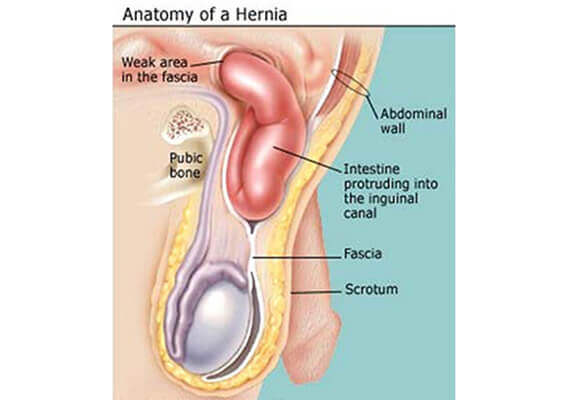
Types of Hernia
The 3 common types of Hernia are :
- Inguinal: Swelling develops in groin (an area between abdomen & thigh) right side, left side or both sides.
- Umbilical: Swelling occurs around the navel
- Incisional : Swelling appears at the site of the scar of a previous abdominal surgery. This can happen soon after the operation or many years later.

Causes of Hernia
Hernias are caused by a combination of muscle weakness and strain. Depending on its cause, a hernia can develop quickly or over a long period of time.
Common causes of muscle weakness include :
- Failure of the abdominal wall to close properly in the womb, which is a congenital defect
- Age
- Chronic coughing
- Straining during urination & defication
- Lifting of heavy weight
- Following injury or surgery

Common Symptoms of Hernia
- The swelling usually appears on standing or coughing & disappears when you lie down.
- Swelling increases in size on lifting heavy weight, coughing, sneezing or straining while passing urine/stool and may cause pain.
- Though pain is not a very common symptom of Hernia, the person suffering may get severe pain if complications like obstruction or strangulation arise, which is very risky and life – threatening.
- In some cases urinary bladder is a content of Hernial sac and this may cause urinary symptoms like urge to pass urine frequently.
- Abdominal pain at times is due to descent of intestines/abdominal fat into Hernial sac, in cases where the ring through which it descends is narrow and therefore exerts pressure. In such situation pain may be felt in the middle of the abdomen.
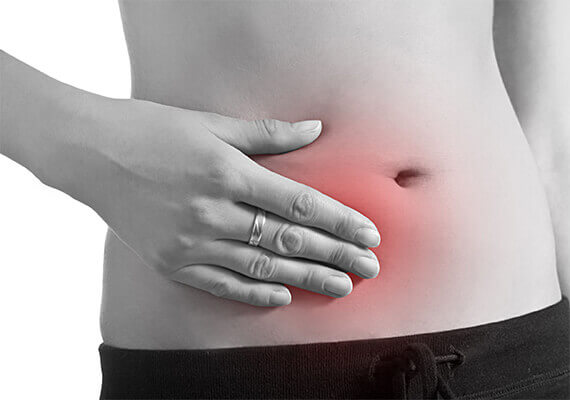
How Is a Hernia Diagnosed ?
Hernia is a clinical entity. A swelling which appears and disappears on pressure is a Hernia. Hernia is typically seen at a known site like groin, navel or previous abdominal scar.
In some cases when Hernia is suspected, but cannot be seen or felt high frequency sonography or MRI can be of help.
Complex Hernia and very large Hernia require CT Scan for further details.
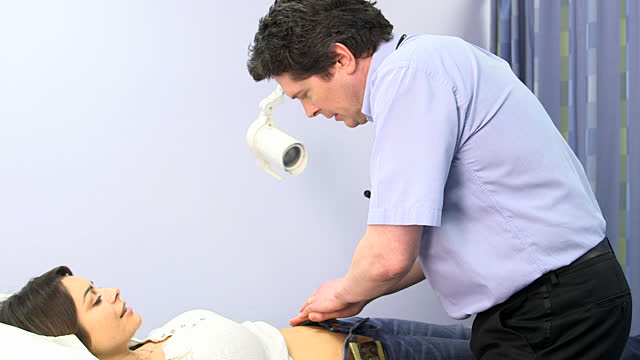
Treatment for a Hernia
Though all Hernia may not get complicated but when they get complicated, it can risk the life & hence it is advisable to treat all Hernia.
Hernia cannot be treated with any tablets capsules or injections, in allopathy, ayurveda, homeopathy, unani or natureopathy.
The only treatment of Hernia is surgery.
There are two types of surgeries for Hernia :
- Open surgery : Which requires a big cut, dissection of muscles and use of MESH to cover the defect
- Laparoscopic surgery : In this the same surgery is done through key holes. Laparoscopic surgery is less painful, reduces hospital stay, leads to faster recovery and with better cosmetic results.

Precautions for Hernia
If you have a Hernia, then you should :
- Obesity
- Avoid lifting heavy weights.
- Avoid straining for urine & stools.
- Avoid heavy exercises.
- Treat cough and cold immediately.
- Stop smoking.
- Not delay consultation of expert Hernia surgeon.
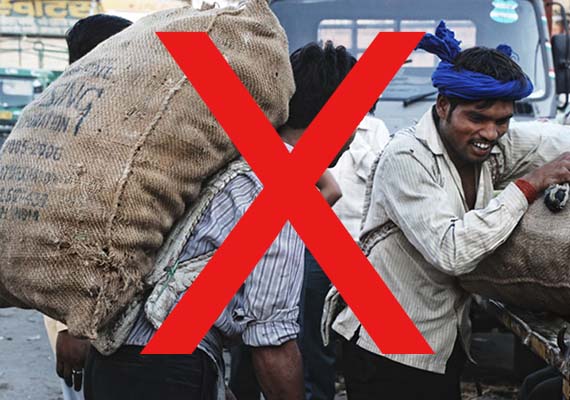
Complication for Hernia
If left untreated :
- Hernia grows in size, becomes bigger & may start paining
- Bigger Hernia require complex procedures and have high chances of re-occurrence.
- Sometimes a loop of intestine may get trapped in Hernia defect leading to obstructed Hernia.
- Obstructed Hernia will lead to severe abdominal pain, nausea & vomiting.
- Increasing pressure on the Intestine can compromise its blood supply leading to Gangrene of Intestine, rupture of Intestine, Sepsis leading to Death.
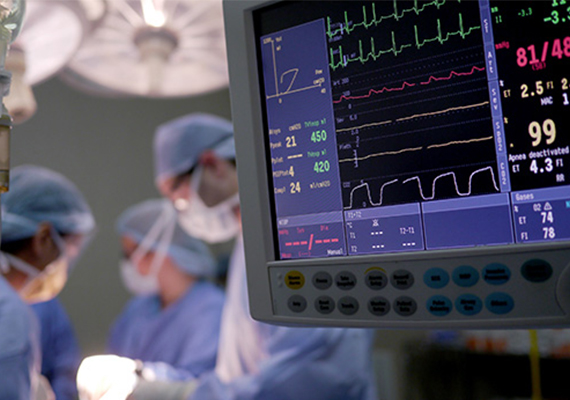
Prevention for Hernia
You can’t always prevent the muscle weakness that allows a hernia to occur. However, you can reduce the amount of strain you place on your body. This may help you avoid a hernia or keep an existing hernia from getting worse. Prevention tips include :
- Stop smoking
- Seeing your doctor when you’re sick to avoid developing a persistent cough
- Maintaining a healthy body weight
- Avoiding straining during bowel movements or urination
- Avoiding lifting heavy weights

Risk Factors
- Obesity.
- Smoking.
- Chronic cough.
- Straining at urine & stools.
- Lifting heavy weight.
- Injury to abdominal wall.
- Abdominal surgery.
- Abdominal Surgery with Open technique.
- Complication of Hernia Surgery – Pain after surgery can persist for long time in some patients.
- Swelling due to fluid accumulation.
- Infection, if happens will convert to Mesh, which has to be extracted.
- Recurrence of Hernia.

